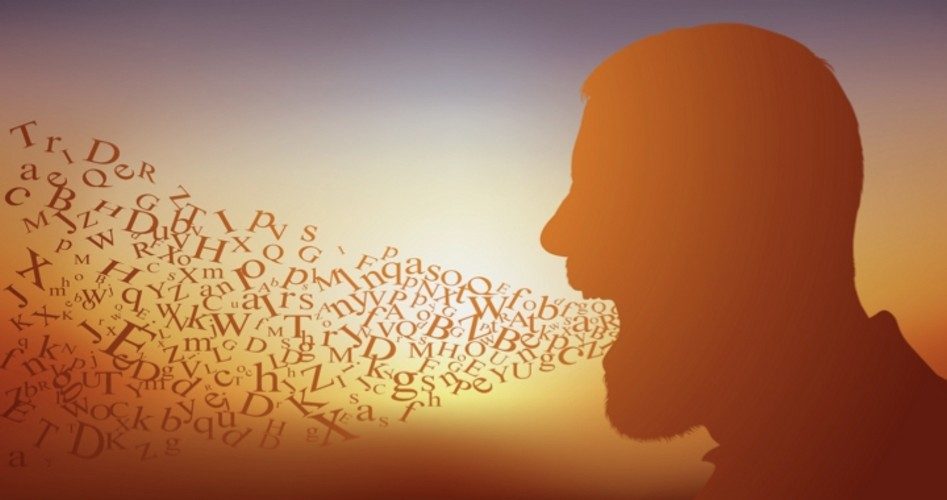
A Philadelphia public-school teacher recently fretted on Twitter that virtual classrooms might allow parents to interfere with teachers’ propagandizing on behalf of anti-racism and pro-LGBT causes.
Matthew Kay, an English teacher at the Science Leadership Academy, a Philadelphia magnet school, posted a thread on Twitter Saturday that began: “So, this fall, virtual class discussions will have many potential spectators — parents, siblings, etc. — in the same room. We’ll never be quite sure who is overhearing the discourse. What does this do for our equity/inclusion work?”
“How much have students depended on the (somewhat) secure barriers of our physical classrooms to encourage vulnerability?” he continued. “How many of us have installed some version of ‘what happens here stays here’ to help this?”
In other words, Kay is worried that he is teaching his students things of which their parents or other family members may not approve — and that, now that they will have a chance to observe his classes, they may counter his teaching, remove their children from his classes, or even jeopardize his job.
What specific teachings does Kay fear parents will not like? He explained:
While conversations about race are in my wheelhouse, and remain a concern in this no-walls environment — I am most intrigued by the damage that “helicopter/snowplow” parents can do in honest conversations about gender/sexuality…
And while “conservative” parents are my chief concern — I know that the damage can come from the left too. If we are engaged in the messy work of destabilizing a kids [sic] racism or homophobia or transphobia — how much do we want their classmates’ parents piling on?
It is clear, then, that Kay seeks to overturn traditional, conservative opinions regarding race, homosexuality, and transgenderism, and he doesn’t want any parents, even those who consider themselves liberal but are insufficiently “woke” on such issues, getting in the way.
Kay hasn’t made many public pronouncements on LGBT issues — he did tell the Teacher’s Corner podcast in March that he has an “LGBT safe space” sticker on his classroom door — but he has been very outspoken concerning race. He even wrote a book, Not Light, But Fire: How to Lead Meaningful Race Conversations in the Classroom.
As far as Kay is concerned, everything is about race, and anyone who denies this proposition — particularly the false notion that white people are guilty of systemic racism — is an obstacle to a world of “racial justice.”
“My book operates from a frank understanding — that at a certain point, a teacher’s refusal to acknowledge how race impacts our students’ lives is willful,” he blogged in June. “Educators, administrators, and policymakers who remain steadfast in their ‘color-blindness’ have chosen myopia…. It takes more effort now than in recent memory to not ‘see race.’”
In an interview with Education Week, Kay said:
Frankly, I doubt the sincerity of most teachers who claim to not “see race.” I hear this claim from people who seek to be absolved of the responsibility to handle racial topics with compassion, thoughtfulness, and rigorous reflection. People who do not “see race” conveniently find themselves never needing to get better at anything. The claim is dishonest. They “see” it just fine.
To teachers who “see” race and feel no need or desire to bring it into their lessons, I earnestly ask, “Why don’t you?”
In his blog, Kay pointed to what he sees as “the intractability of individual colleagues’ racism” and declared, “Sometimes you’ve just gotta step over them.” As the American Conservative’s Rod Dreher put it, “He doesn’t want to change his opponent’s [sic] minds, but plow right over them.”
Likewise, he’d prefer to be able to fill his students’ minds with the latest social-justice propaganda without having to worry about interference from their parents. “This approach destroys the kind of trust that has to exist between teachers and parents for the school to be successful,” remarked Dreher. “It is an outrageous exploitation of a teacher’s relationship to minor students, and a violation of the parents’ trust.”
Apparently, some other folks felt the same way because the furor over Kay’s tweets caused him to make his Twitter account private. By then, however, the truth had gotten out: Teachers are trying to indoctrinate students behind their parents’ backs. At least the parents of Kay’s students now have fair warning.
Image: Pict Rider / iStock / Getty Images Plus
Michael Tennant is a freelance writer and regular contributor to The New American.



